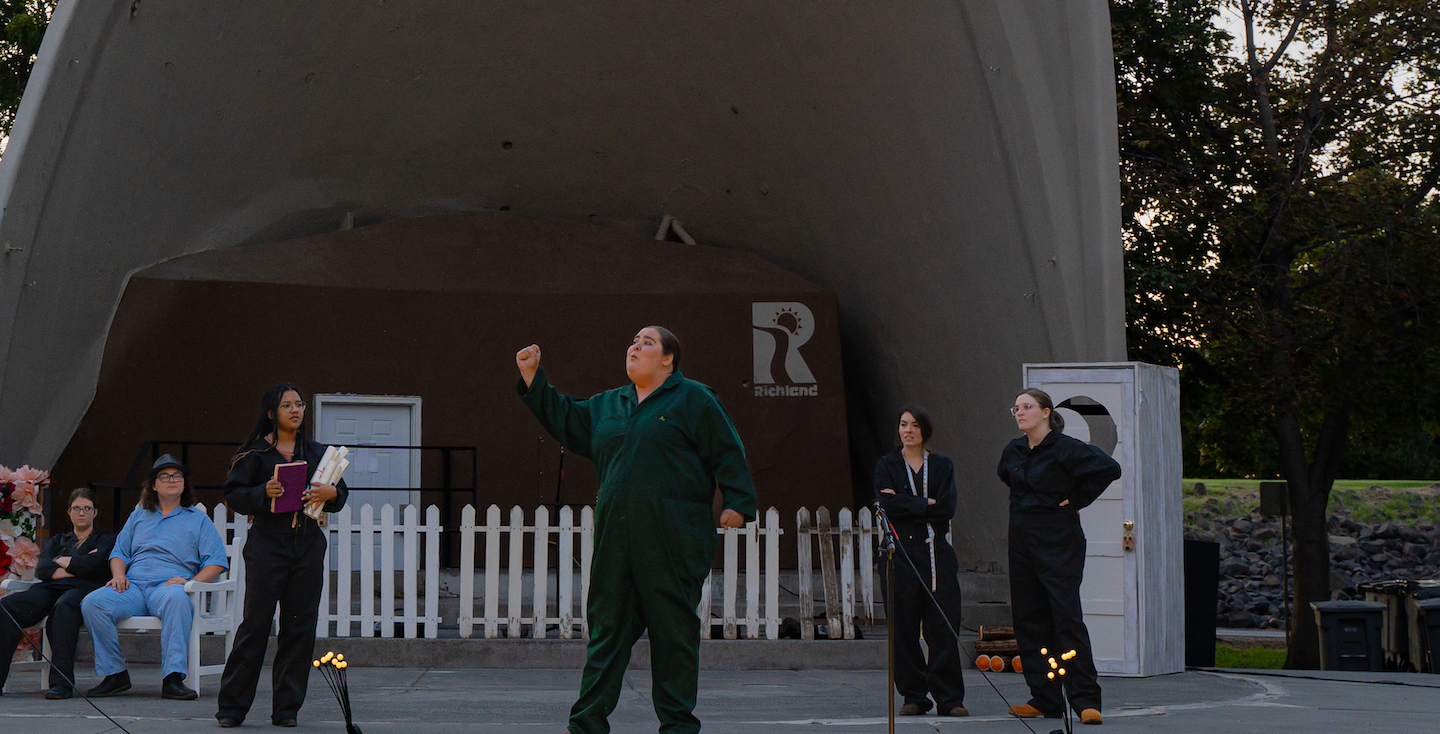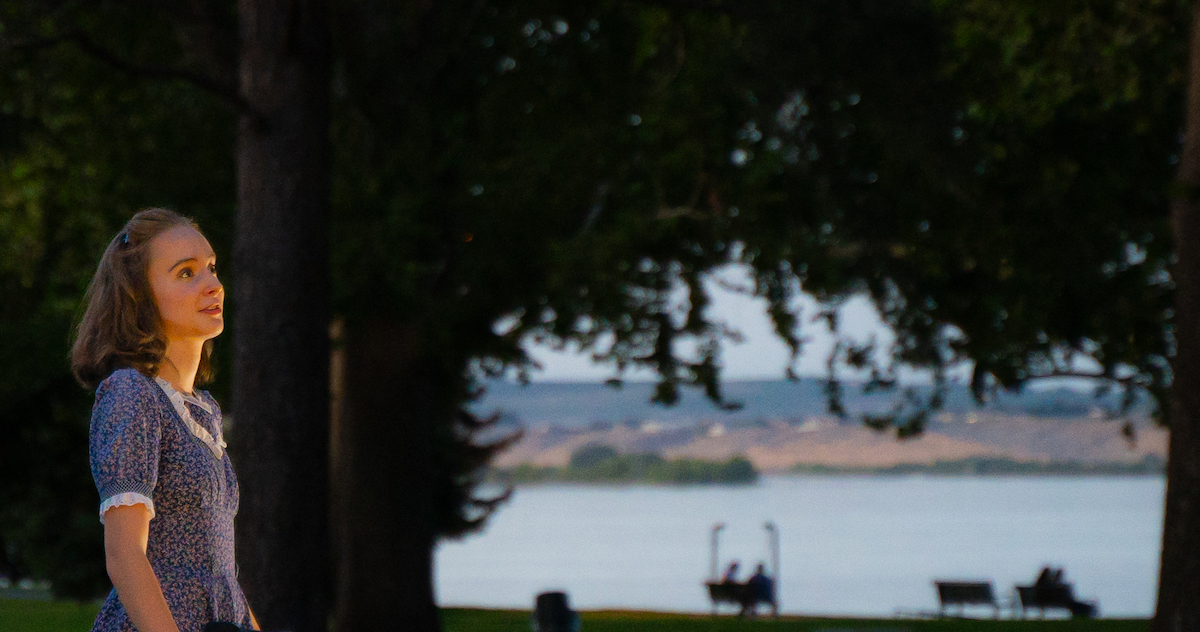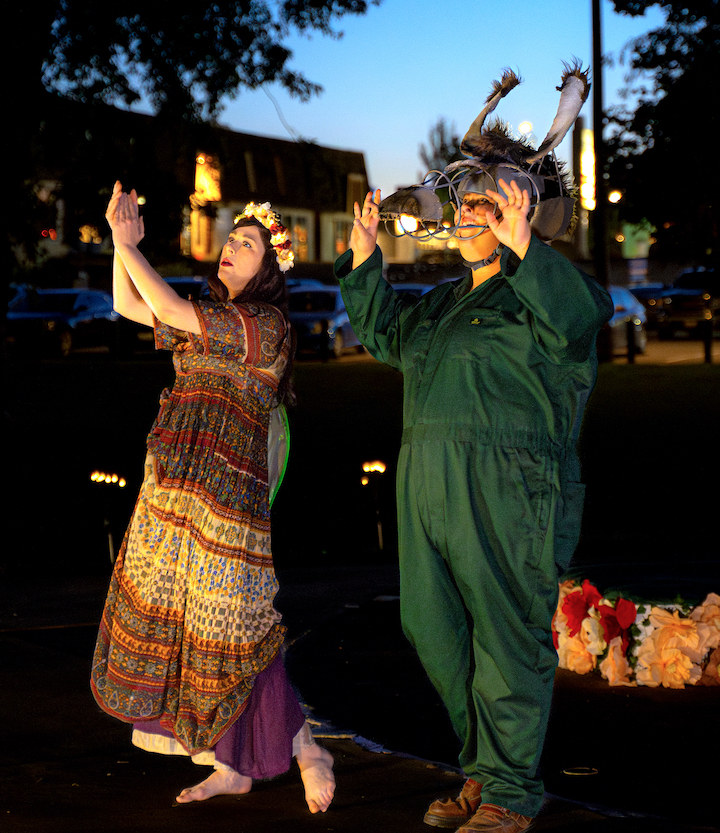The Rude Mechanicals – 2023 Accelerator Case Study
The Rude Mechanicals
Website: https://www.rmtheatre.org/
Budget Size: Below 50k
Region: Eastern
County: Benton
Population Centered: Rural
Mission Statement: We enhance our community through the performing arts, educate the public on the value and impact of live theatre, elevate the quality of live theatre locally, and entertain the community by delivering high-quality Shakespeare-inspired theatre produced by our ensemble cast and crew.
Community Accelerator Grant Award: $22,500
Primary Impact Category: The Future

The Rude Mechanicals, a theatre troupe serving the Columbia and Walla Walla valleys of Southeastern Washington, recently closed a production of A Midsummer Night’s Dream that they consider a major success. Over 500 people attended their three free performances at Richland’s Howard Amon Park, and audience members shared that their experience was comfortable, casual, and surprisingly unstuffy for a night of Shakespeare. Local business owners near the park who had agreed to provide discounts to theatergoers reported significant upticks in visitors and purchases on performance days. The acting company told staff that they felt seen, appreciated, and taken care of in ways that they considered rare for community theatre.
For a company that made it through the pandemic by the skin of its teeth, it’s all just as miraculous as Titania’s sudden infatuation with Bottom. The Rude Mechanicals was founded in 2015 to bring Shakespeare and Shakespeare-adjacent theatre to a predominantly rural region where there were few opportunities for theatremakers outside of academic institutions. They were just finding their footing as a community presence when COVID-19 hit, and when their sole staff member resigned, they didn’t have the resources to replace them. Though the board pulled together to see The Rude Mechanicals through a handful of virtual seasons, Board President Emily Richman was having some trouble seeing the light at the end of the tunnel. “When I look at where we were, my stress levels, how many layers of anxiety we were operating under…” she trails off.
“Without hyperbole, I think this grant saved us.”
Emily Richman, Board President, The Rude Mechanicals
Emily and new Interim Executive Director, Liz Fenstermaker, credit the Community Accelerator Grant with kickstarting the company’s transition from survival mode to thinking ahead and planning for the future – which was, Emily says, “the thing that made it so we did not have to close The Rude Mechanicals.” Grant funding allowed the board to hire two part-time staff members – Liz and Artistic Director Cyndi Kimmel – to oversee day-to-day operations, rebuild relationships, and do some dreaming about how The Rude Mechanicals could best serve the community. This year, their primary focus is on increasing cultural, physical, and financial accessibility. In recognition of the large Spanish-speaking population in their region, where approximately 37% of residents are Latinx, they’re working towards a fully bilingual website and many other Spanish-language resources. They’re making it easier to get to their performance spaces by sharing bus routes and parking information, and providing scripts so that Hard of Hearing patrons can follow along with the show. Liz and Cyndi are also currently scouting unconventional performance venues across Benton, Franklin, Yakima, and Walla Walla counties in the interest of “interrogating,” as Liz says, “some of those old ideas about where theatre can happen and for whom. We want to go to people instead of expecting them to come to us.”


To make sure their programs are as accessible for participants as they are for audience members, The Rude Mechanicals have also committed to defraying the silent costs of being a volunteer artist, such as gas, costume pieces and makeup products brought from home and donated to the cause, and mosquito repellent (which is worth its weight in gold when you perform on the banks of the Columbia in the summer). After they were awarded a Community Accelerator Grant, the team was energized to seek additional funding and received a $3,475 grant from the Wildhorse Foundation, which allowed them to institute a company management program reimbursing Midsummer actors and crew members for travel, meals, and incidentals. For many, it was the first time they received any tangible remuneration for their artistic work.
As they look ahead to new initiatives, new partnerships, and new opportunities, Emily and Liz are still a little stunned at the difference a year can make. “This funding was instrumental in getting us to the place where we are now,” says Emily, “and we’re going to be able to continue to build on that and grow.”